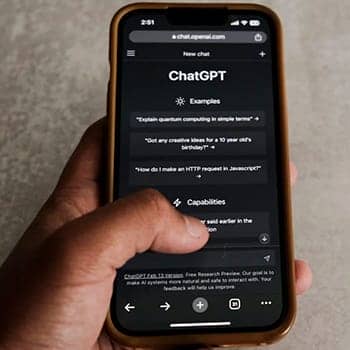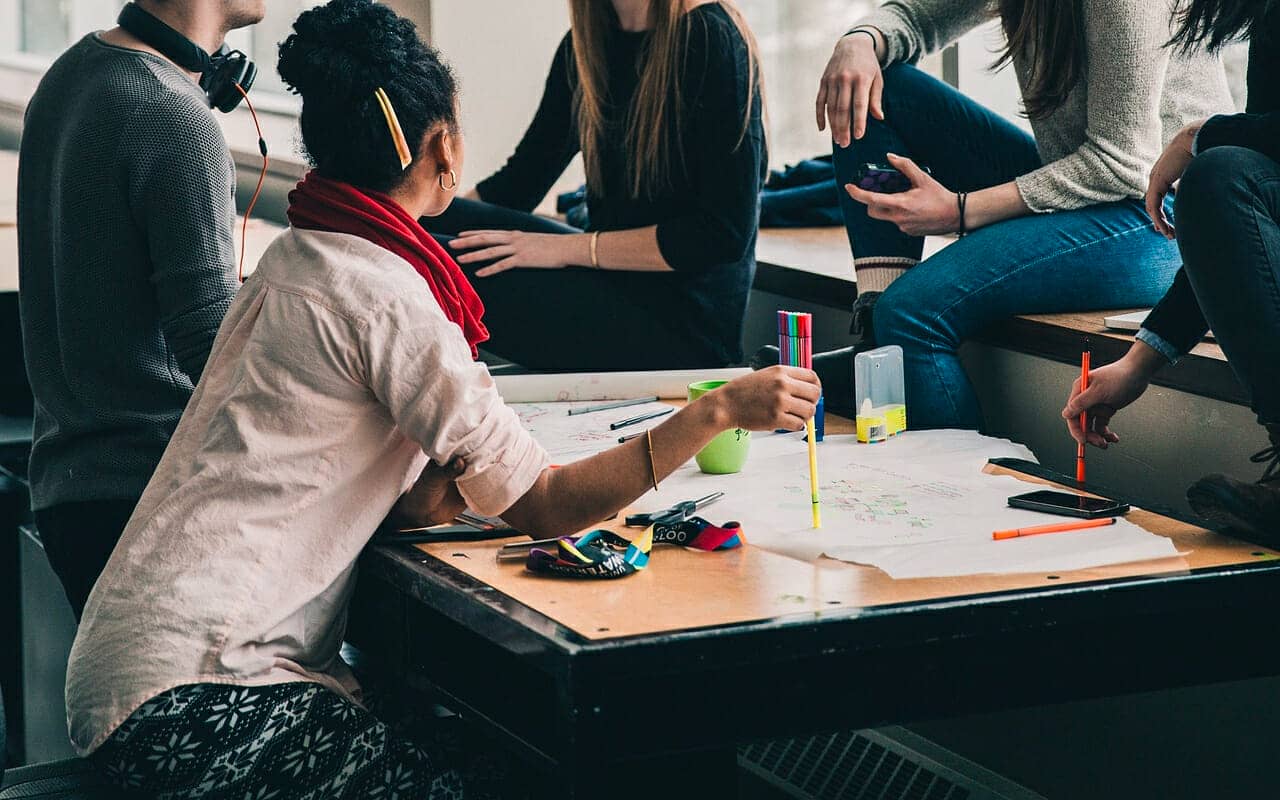 Some people tout holistic learning as a solution to boredom and a lack of engagement amongst students.
Some people tout holistic learning as a solution to boredom and a lack of engagement amongst students.
And it is true that people unhappy with traditional schooling constantly look for more exciting ways to learn.
That, or they ignore proven study routines in search of “learning hacks.”
For this reason, looking at holistic education from a big picture point of view definitely makes sense. And it should addresses the entire individual in their specific context.
But often, education experts are missing the forest for the trees.
Memory science tends to show us that we’re not as unique or individual as we think. There are certain standards we can all strive to meet and a common language we can share.
By the same token, many scientific findings must be challenged. And to do that, we need to look at holistic study itself holistically. With a keen eye to the granular details at the same time.
As I’m about to demonstrate on the basis of my experiences as a PhD graduate in Humanities at York University, we need both:
The larger “holistic” picture and singular goals based on definiteness of purpose.
Since we tend to look to others so we can model both the big picture overview and the specifics, it’s more important than ever to get this right.
So if you’re ready to dive into the potential for holistic learning when you get this right during our time of constant change, let’s get started.
What Is Holistic Learning?
Some people define holistic learning as a way of connecting school requirements and responsibilities with real life.
This is true. There are many ways to do this and I recall in Germany how schools helped young people learn to wash dishes so they could help complete the same tasks at home.
There are also the dimensions of bringing creativity, critical thinking, logical thinking and collaborating with others to learning. In this sense of rounding out how your learn, a greater sense of engagement is inevitable, even with boring topics.
However, here’s where I would propose an alternative definition to holistic learning, one from the past that we cannot allow to be eroded completely away.
During the Renaissance, many polymaths appeared. These were people who mastered multiple topics, largely because of a particular approach to holistic learning.
The Lost Art of Learning
It was based on mastering the Trivium first, then embarking on the Quadrivium.
In brief, students did not study math, music, geometry or astronomy in any particular depth until after they mastered logic, rhetoric and grammar. In this case, rhetoric and grammar had different meanings than they do today. Rhetoric involved the art of memory and grammar largely focused on what we know think of as logic, critical thinking and reasoning abilities.
Although I’m not saying we should revive this exact learning structure, it was holistic in the sense that by setting foundations first, it was possible for people to make much larger connections later on in life.
Whereas now, many countries are failing to produce well-rounded learners, the Renaissance produced people like Giordano Bruno and Robert Fludd who dared to dream that they could learn and master multiple topics. Because they laid the foundations of thinking, expression and philosophy first, many much better enabled to “connect the dots” between multiple topics.
But these days?
Many schools encouraged students to focus on topics that have less to do with thinking and more to do with accepting. It’s quickly becoming a world of “all politics, all the time,” which is will undoubtedly look like a race to the bottom when future generations look back at us.
The Big Wins of Holistic Learning
Now, I know that beefing up on topics like logic, rhetoric and grammar might sound like a drag.
But the reality is that when students get the ancient learning strategies I teach into their study routines through deliberate practice, fun is the result.
So too is fulfilment.
So if you want to solve problems, understand others better and enjoy greater creativity, here are my suggestions for what to do to truly learn holistically.
How To Implement Holistic Learning In Different Settings
If you decide to incorporate logic, critical thinking, and rhetoric in the mnemonic sense meant by the author of Rhetorica ad Herennium before adding the arts and sciences, you will wind up with better memory, mental fitness and leadership abilities.
The core techniques I suggest, after familiarizing yourself a bit further with learning structures like Trivium and Quadrivium include:
- The Memory Palace technique
- The Major System
- PAO System
- Pegword Method
- Visual memory techniques
- Linking
- Story Method
- Zettelkasten
- Spaced Repetition
Now, you might be thinking… how can this lead to holistic learning when there’s nothing in the list about “artificial intelligence.”

Rather, I am making the point that my idea for using ChatGPT in this way arrived thanks to having the foundations for learning holistically already in place thanks to the list of accelerated learning strategies in the bullet points above.
One: Learning At Home
No doubt about it, the memory techniques I teach and use personally work better when you’re alone, or at least in an optimized study place.
Students in the Magnetic Memory Method Masterclass often start by applying these techniques to memorizing key information from textbooks.
You can also work at language learning from home. This is especially possible in our era because it’s never been easier to use Zoom and certain language learning software programs for immersion-from-home.
Two: Holistic Learning Techniques At School
Here’s where basing holistic learning on the older traditions really starts to shine.
Rather than feeling left behind or constantly confused, students with these techniques rapidly remember key ideas. They quickly chunk information into memory in real-time. And they have exceptional note-taking skills.
Your reading comprehension will also grow over time because it’s based on a solid foundation.
Three: At Work
Imagine being able to remember the names of new contacts and colleagues in a flash.
The overwhelm you used to feel when managing profit and loss statements? Gone because you have the ability to remember things at work on demand.
Holistic learning, when based on the true foundations of thinking, expression and remembering are more important than ever in today’s hyper-competitive world.
Four: Online
Although it’s no longer clear exactly what “online” means (assuming the term ever was fully meaningful), we all need to be able to learn in digital environments.
This needs is tricky because the threat of digital amnesia is real – the idea of becoming a Renaissance man in our day and age is becoming nearly impossible when people can’t remember what they looked at five minutes ago.
The good news is that there are ways to use digital technologies like Evernote, Obsidian and Anki well. The trick is to be truly holistic about them by using interleaving and understanding the Ovsiankina effect.
Overcoming Challenges In Holistic Learning
At the risk of using circular logic, the way to deal with challenges in learning is to learn how to deal with them.
One challenging criticism of this approach to learning is that not enough people have wide enough “situational awareness” to include enough material. That was the wording used in this study of the scientific studies of holistic learning.
How can you gain more situational awareness? The process starts by defining where you are personally:
- Truly unique
- Not at all unique
Of course we’re all individuals. But when it comes to memory science, few of us are exceptions to the rules of how memory works.
Even people with aphantasia can find ways to use mnemonic strategies, for example. They just need to address the challenge for what it is and cultivate the mental strength that will help them research, plan and implement a path forward. As this study shows, it’s learning in context that matters above all.
One parent who gives a powerful example of doing this is Kevin Aires. He made sure to include memory techniques for his daughter, Imogen. As a result, she went on to host her own podcast after doing very well in school. That’s the power of teaching your kids memory techniques so they can be holistic learners.
Holistic Learning Requires Time Management
Learning how to manage your time is a key element too. Once you have memory techniques and holistic learning tactics on your side, organizing your schedule is the major obstacle that has to be dealt with… pretty much every day.
My friend and fellow memory expert Johannes Mallow has shared how he schedules his training regimes for massive success. I’ve also shared my best tips when it comes to using journaling for self-improvement generally and specifically using commercially available products like The Freedom Journal.
If you want to make the transition to lifelong learning, I highly suggest addressing any obstacles you have with these approaches to journaling. It helps create reflective thinking that leads to success.
And when it comes to the memory improvement aspect, if you’d like more help, feel free to complete this course:
It gives you four videos and three worksheets on a “self study” basis.
And if you have questions, I’m a holistic learner myself. I’ll be here to answer.
The best part?
I don’t believe in having “customers.” You’re not a customer while going through my free course anyhow.
You’re a fellow learner, and if my leadership style comes down to just one phrase, it is this:
Take action. Get results.
It’s the universal law. And he more you take the best possible actions based on the knowledge you have and are willing to give yourself through the process of implementation, the more results you’ll get.
So what do you say? Are you ready to learn more holistically and help others do the same?
Make it happen!
Related Posts
- Stoic Secrets For Using Memory Techniques With Language Learning
Christopher Huff shares his Stoic secrets for using memory techniques when learning a language. You'll…
- The German Professor Who Defends Memory Techniques for Language Learning
This professor defends memorization techniques for learning foreign languages and has the science to prove…
- Memory Techniques For Chinese with Mandarin Blueprint
Mandarin Blueprint provides exceptional material for learning Chinese, including characters, pronunciation and the best memory…








